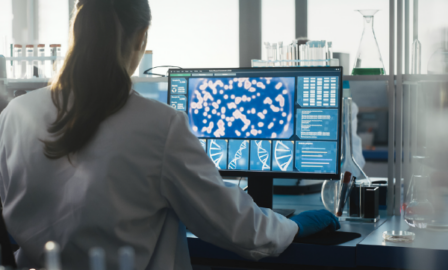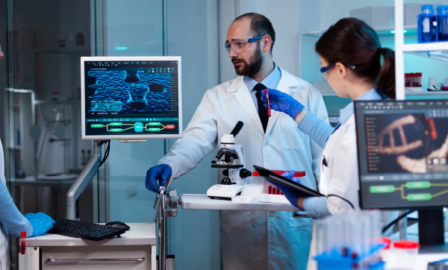Enabling Safety and Sustainability with Drug Take Back Programs
There are a number of regulations in the pharmaceutical industry surrounding safe practices for drug security and traceability along the supply chain – regulations put in place to ultimately protect drug integrity and the patient. However, what happens to unused or leftover medication after it makes its way to the patient? Leftover medicine has been a social and environmental problem for decades; however, the problem doesn’t lie in the absence of innovation, but rather the awareness and education surrounding drug take back programs.
Investing efforts to improve education on the disposal of leftover medicine can minimize pharmaceutical accidents and contribute toward a more sustainable pharmaceutical industry. These efforts can also encourage pharmaceutical companies to take greater ownership and leadership in spearheading sustainable changes for the betterment of the industry and the community.
Community Challenges
Having unused drugs is widely experienced – in fact, every year, 2.8 million pounds of prescribed medications go unused. Drugs, just like any other leftover hazardous material, should be handled safely. The CDC reports that 50,000 children go to the emergency room each year from prescription medicine that they ingest while an adult is not looking. Additionally, one study found that only about 30% of the $3.8 billion controlled medications are actually used by the patients for whom they are intended.
As of now, the methods of correctly disposing of drugs are limited. The Food and Drug Administration (FDA) permits patients to dispose of leftover medicine by throwing it in the garbage and sometimes by flushing them. However, these practices have drawbacks. Generally, medicines should not be flushed due to environmental effects, unless research has been done that proves otherwise via the FDA flush list. Medicines can be thrown away; however, it’s also important to keep in mind that garbage is at risk of being searched through.
Drug Take Back Programs
One best practice for disposing medicine is through Drug Take Back Programs, which allow patients to safely dispose of unused or expired drugs through drop-off boxes and authorized collections sites, often located at healthcare or law enforcement facilities. Along with collection sites, National Prescription Drug Take Back Day is an event hosted twice per year by the DEA. This event encourages individuals to take back expired or unused drugs through safe and anonymous disposal – it also serves a periodic opportunity for people who don’t have a permanent collection site close to them to dispose of medicine.
While drug take back programs are a great initiative for safe drug disposal, the awareness and information on voluntary drug take back is minimal and even confusing. Of about 1,200 parents surveyed in the National Poll on Children’s Health, only 8 percent knew to return the unused drugs to a pharmacy. Additionally, of the group, two-thirds did not discuss prescription disposal options (or the lack of risks) with a doctor or pharmacist.
Drug take back programs are one way to ensure safe drug disposal, but there needs to be a greater focus on promoting awareness and understanding of these practices for them to make a greater impact on safety – and sustainability – moving forward.
Moving Toward a More Sustainable Industry
Drug take back programs are a crucial step in the pharmaceutical industry’s push to become a safer, more sustainable industry as a whole. They also represent an important step in a circular economy, meaning that products (drugs) are manufactured in a sustainable way, and any waste (unused or excess drugs) is minimized as much as possible. When it comes to advocating for safe drug disposal and encouraging a more sustainable environment, though, who should manage those efforts? Where does the responsibility currently lie, and where should it moving forward?
Pharmaceutical Industry + Regulations
At the root of driving sustainability lies an opportunity for pharma companies to implement such changes. One example of this is a push for action through the Extended Producer Responsibility (EPR) legislation. EPR is “an environmental protection strategy outlining that responsibility for safe take-back, recycling, and final disposal of products at the end of their lifecycle should remain with the producers, importers, and retailers of those materials…”
Simply put, while patients and the government can contribute toward safer disposal methods and sustainability initiatives, the industry itself has a greater responsibility to encourage, support, and ensure those efforts that prioritize end-of-life product management and advocate for safe drug disposal methods. In addition to Drug Take Back Days, the industry could work to spread awareness about regulations, such as EPR, and distribute educational materials to manufacturers, companies, and communities to better promote this information.
Pharmaceutical Companies + Patients
For years, the pharma industry has beein in the spotlight, first routinely ranked low in terms of trustworthy industries overall, according to the Edelman Trust Barometer. Additionally, in the past few years, there’s been augmented focus on the industry as a result of the COVID-19 pandemic, which highlighted to the average citizen more about the pharma industry than they’ve ever known. And patients are continuing to pay attention to the pharma industry as they continue to navigate the lingering effects of the pandemic.
All of these, coupled with patients who are increasingly demanding greater sustainability from the brands and companies that they support, presents an opportunity for pharma companies to gain patient trust through their actions – particularly ones that contribute to a more environmentally friendly industry.
By establishing and sponsoring their own drug take back programs or initiatives, individual pharma companies can demonstrate a genuine commitment to sustainability and to the interests and values of their patients. An initiative as simple as including information about safe drug disposal methods – and the environmental impact of incorrect disposal – on the back of their packaging could encourage their patients to minimize their impact on the environment while safely disposing of unused medication.
Where to Start
Regulatory obligation is going to put pressure on quality and regulatory teams to ensure compliance; however, there is value beyond just compliance. Drug take back programs contribute to sustainability, but they also encourage a safer community. If the pharma industry and individual brands want to have an impactful role in sustainability, quality and compliance teams coupled with sustainability experts and other stakeholders throughout the organization will facilitate true growth in sustainable strategies and goals.
Businesses leading the market in sustainability recognize that cross-functional collaboration is imperative to ensure lasting and impactful results. As this industry faces new challenges every day, specialists in sustainability and quality compliance can facilitate organizational changes toward the betterment of pharma’s role in the community.
Looking Ahead
By abiding by regulations such as EPR or investing in resources and initiatives that improve awareness of and support for sustainability, there’s a great opportunity for the pharma industry and pharma companies to champion circular economic efforts moving forward. While drug take back programs have exciting potential, it’s essential that concerted, collaborative efforts be made in other ways – on the part of the industry, individual pharma companies, and the community – to spread greater awareness, encourage sustainable action, and guide the pharma industry toward a safer and more sustainable future.
Subscribe to Clarkston's Insights
Contributions from Leah Harding



